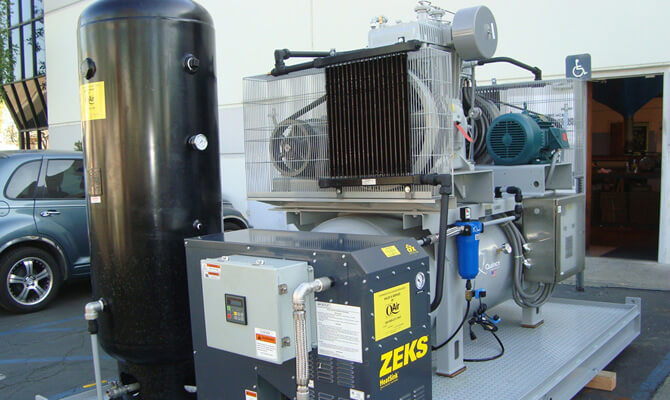
When choosing a compressor, you should first determine what you plan on using it for. Consider whether you need compressed air for specialized applications. How much air do you need? You can calculate this in cubic feet per minute by checking the tools or equipment specifications you intend to use the compressed air on.
With that in mind, here is a simple guide to steer you in the right direction:
- Reciprocating piston compressors are mostly used for high-pressure/low-velocity applications (under 30 bars). This is sufficient for most general-purpose applications, like providing compressed air in a workshop for cleaning dust, hand-tools, or small paint jobs.
- Rotary screw compressors are typically used for continuous applications with high velocity/low-pressure (7/8 bar)
- Oil-free rotary screw compressors are ideal for applications that require absolutely no contact with oil. Otherwise, you should consider the more cost-effective oil-injected type
- Oil-injected rotary screw compressors have better energy efficiency than piston-type compressors. They also have low noise level, and deliver vast amounts of compressed air at fairly low exit temperature.
- Scroll air compressors are ideal for silent, smooth delivery of compressed air. They have no vibrations, and are mostly used for applications that need small amounts of clean, oil-free compressed air, such as laboratories, specialized factories, or drinking water-treatment facilities. However, the output volume is quite lower compared to an oil-free rotary screw compressor.
